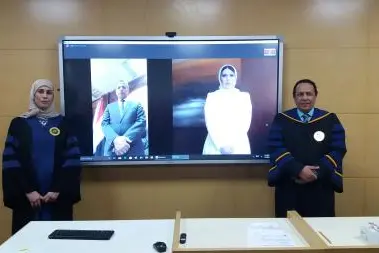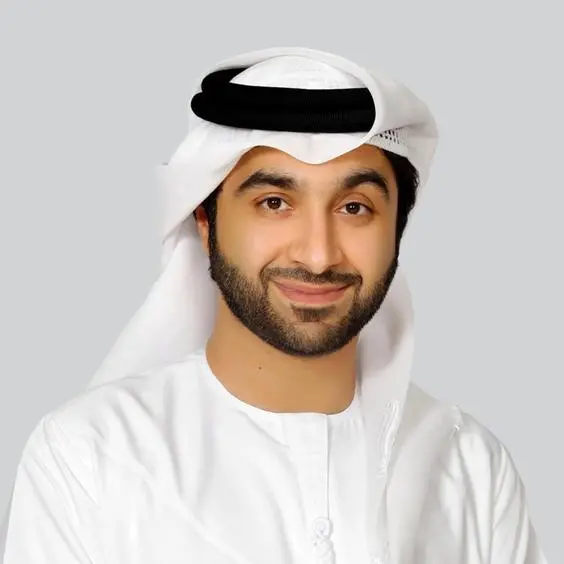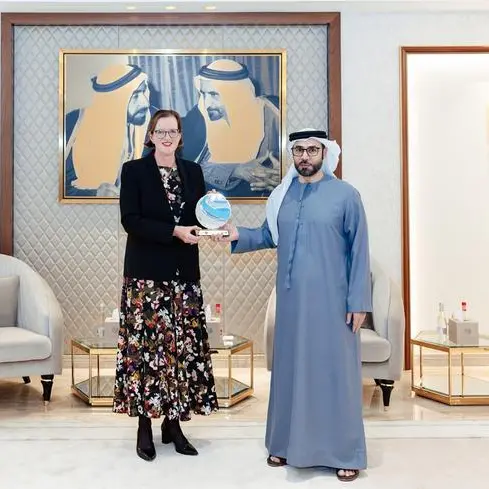PHOTO
Manama, AGU: A recent study conducted at the College of Graduate Studies (CGS) at the Arabian Gulf University (AGU) examined the long-term effects of care programmes on the mental, cognitive, social, emotional, and moral aspects of gifted students.
The study called for the development of the capabilities of teachers and programme providers. Moreover, the study also called for more interest in the process of evaluating interim and final programmes and creating feedback that affects future programmes.
Additionally, the study recommends encouraging gifted students to continue attending these programmes and never drop out because this will not achieve effective programme development.
Researcher Anwaar Abdulla Al Hammadi, who discussed her thesis that was presented as part of the requirements for obtaining a Ph.D. degree in the field of gifted education in visual communication method, said that expanding the application of gifted students care programmes necessitated the emergence of a need to follow up and develop these programmes to keep pace with developments and the rapid growth of knowledge and the continuous changes in education and care systems.
Moreover, Ms. Al Hammadi explained that the process of evaluation is one of the most important elements in the success of the programme. She further elaborated that the research aimed to identify the long-term effects of enrichment programmes on the mental, cognitive, social, emotional, and moral aspects of gifted students at the university level in the Kingdom of Saudi Arabia, and to study the degree of variation of mental, cognitive, social, emotional, and moral aspects of gifted students at the university level in terms of gender and number of participants in those care programs.
The researcher used the descriptive-analytical method on a sample consisting of (134) male and female students from universities in the Kingdom of Saudi Arabia. The sample consisted of 71 males and 63 females. The study used the scale of future problem-solving skills to measure mental aspects, emotional creativity scale to measure cognitive aspects, scale of emotional social features to measure the emotional social aspects, and the moral sensitivity scale to measure the moral aspects.
Furthermore, the test results for one group showed that there are far-reaching effects on the dimensions of the scale of solving future problems (expectation, visualisation, planning, forecasting) and the overall score; the dimensions of the emotional creativity scale (emotional readiness, emotional novelty and emotional competence/originality) and the overall score; the dimensions of motivation, independence, the overall score on the emotional social aspects scale, and the overall score on moral sensitivity.
The results indicated that there is no long-term impact of care programmes on the variable of leadership, as the results of the "T" test for independent groups showed no discrepancy between the responses of gifted university students on the variables of mental, cognitive, social, emotional, and moral aspects according to gender and the number of participants in enrichment programmes. Moreover, the researcher presented a set of recommendations, the most important of which is the necessity of subjecting care programmes.
In addition, Alhammadi recommended the necessity of providing training courses to course officials and teachers in order to develop their abilities to achieve the goals of these programmes and to adopt the enrichment programme within the extra-curricular activities of primary, intermediate, and secondary schools, and the talent departments to develop the mental, cognitive, social, emotional, and moral aspects. Moreover, the researcher recommends allocating interest into evaluating the learning outcomes of the enrichment programmes that are offered to gifted students at various stages to know the extent of their effectiveness and their different effects on gifted students. Additionally, the researcher emphasised the need to subject these programmes and their activities for continuous experimental and evaluation studies and research to measure their impact, learn about their strengths and weaknesses, and identify opportunities for improvement to improve them and achieve their desired goals.
The examiners’ committee consisted of Dr Alaaeldin Ayoub and Dr Emad Alzeghoul, Dr Huda Al Handal and Dr Mahfouz Abdel Sattar, Dean of the Faculty of Education at Hurghada University.
--Ends--
Ms. Fatima Majeed Al-Hajari
Administrator - Media Department
Fatimaalh@agu.edu.bh
Arabian Gulf University
Tel: 973 17 239 569
P.O Box 26671
Kingdom of Bahrain
www.agu.edu.bh
© Press Release 2020
Disclaimer: The contents of this press release was provided from an external third party provider. This website is not responsible for, and does not control, such external content. This content is provided on an “as is” and “as available” basis and has not been edited in any way. Neither this website nor our affiliates guarantee the accuracy of or endorse the views or opinions expressed in this press release.
The press release is provided for informational purposes only. The content does not provide tax, legal or investment advice or opinion regarding the suitability, value or profitability of any particular security, portfolio or investment strategy. Neither this website nor our affiliates shall be liable for any errors or inaccuracies in the content, or for any actions taken by you in reliance thereon. You expressly agree that your use of the information within this article is at your sole risk.
To the fullest extent permitted by applicable law, this website, its parent company, its subsidiaries, its affiliates and the respective shareholders, directors, officers, employees, agents, advertisers, content providers and licensors will not be liable (jointly or severally) to you for any direct, indirect, consequential, special, incidental, punitive or exemplary damages, including without limitation, lost profits, lost savings and lost revenues, whether in negligence, tort, contract or any other theory of liability, even if the parties have been advised of the possibility or could have foreseen any such damages.




















